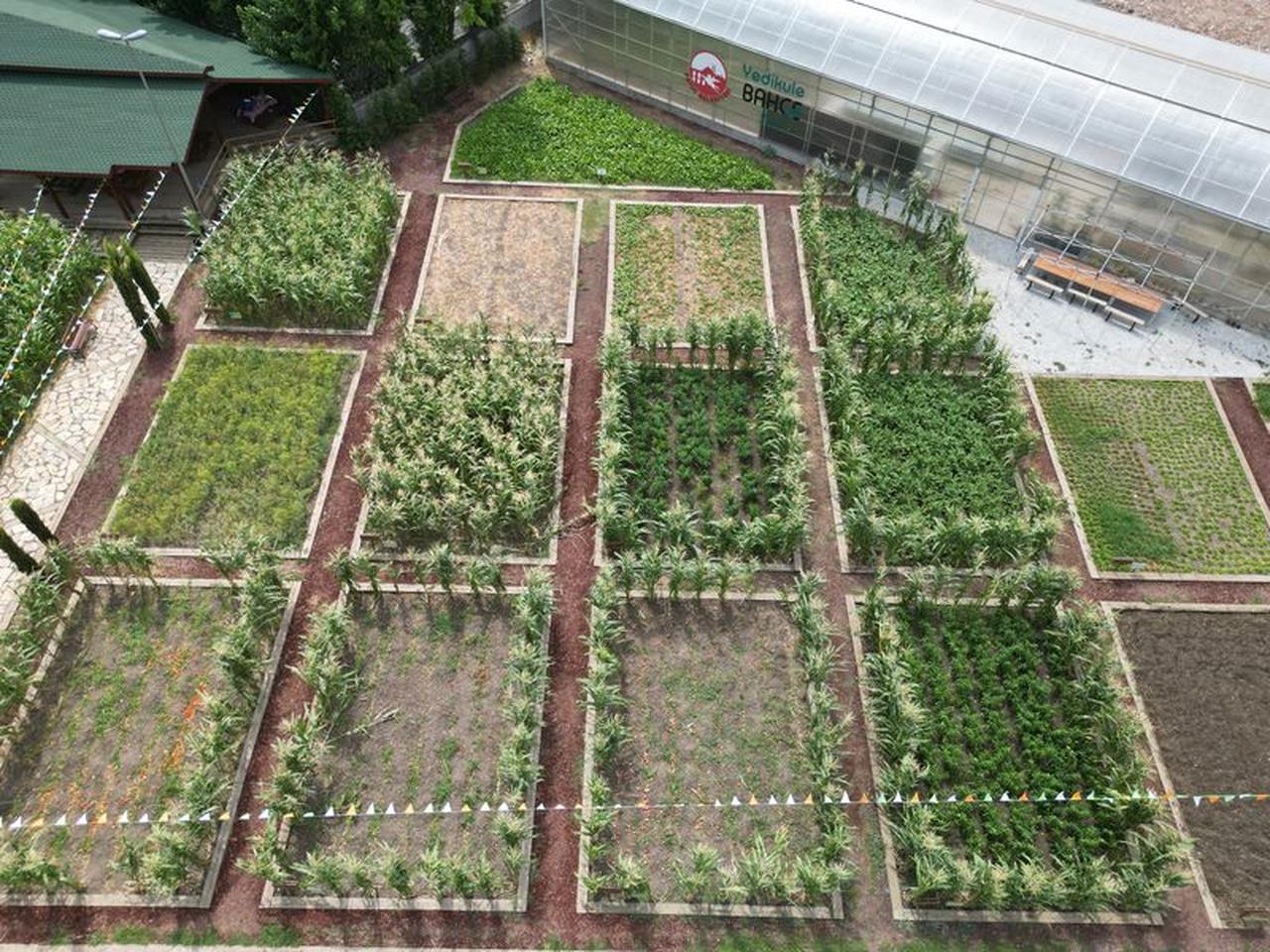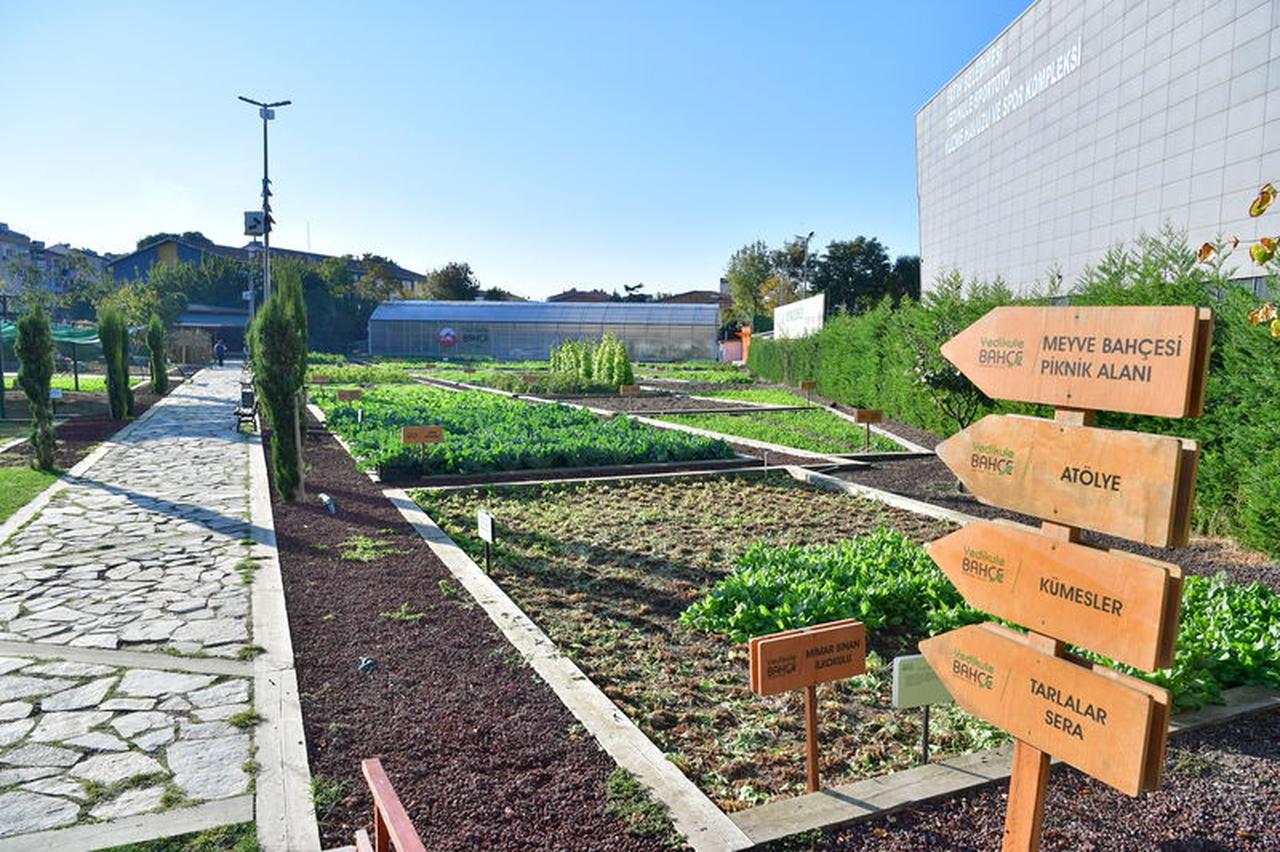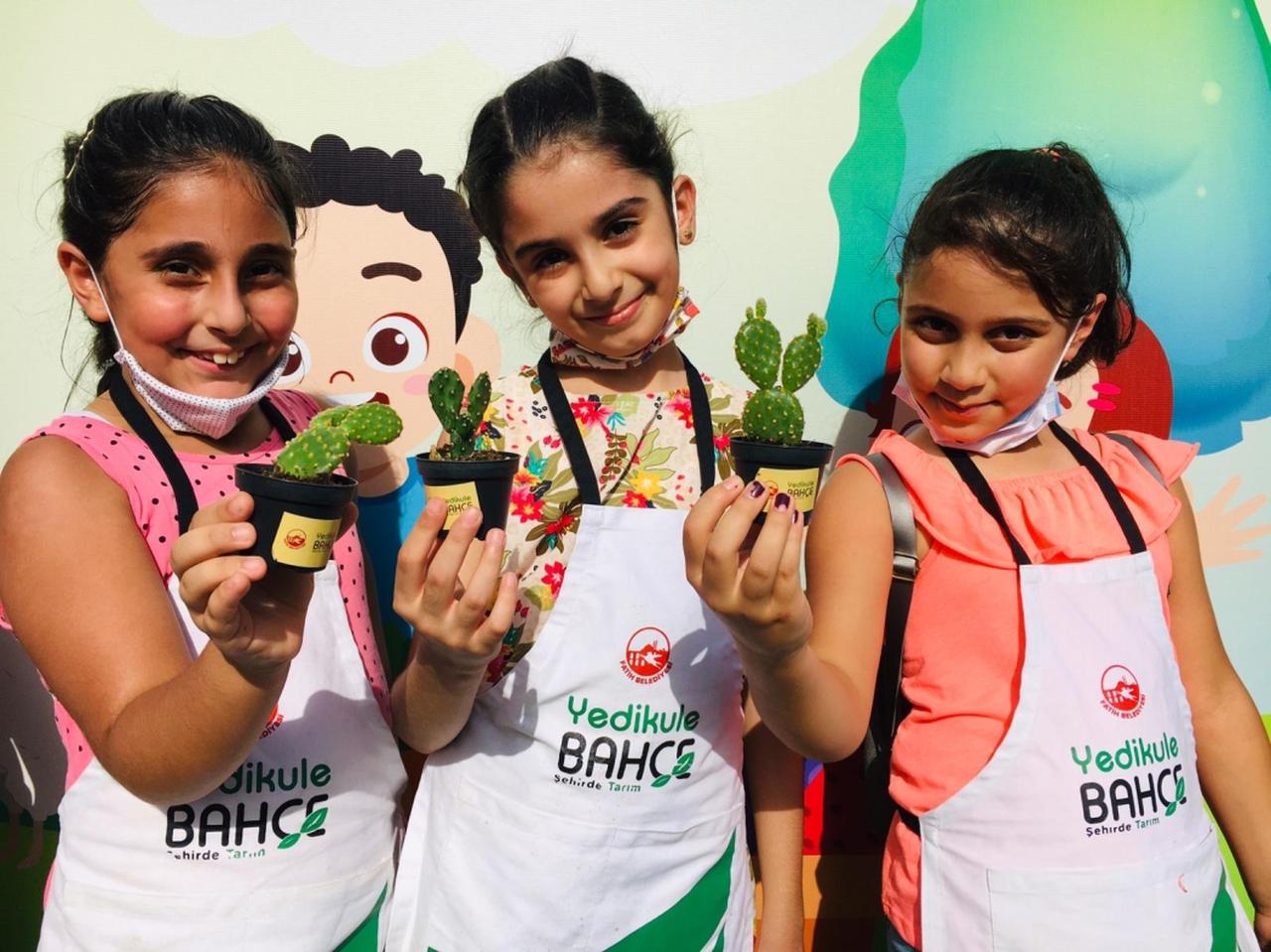
In Istanbul’s Fatih district, the Yedikule gardens stand out as one of the few surviving examples of active urban farming. Having a history dating back to centuries, they have succeeded in sustaining their presence in community life by means of agriculture, education, and cultural continuity.
As the city grows in terms of modern-day construction and infrastructure, these gardens demonstrate that traditional farming techniques and local involvement can continue to influence the city. The plant hospital is one of the latest developments of the site, which proves that even small but practical solutions can bring residents closer to nature and green spaces in the city center.
The Yedikule gardens offer a physical link to nature and history in a megacity that is commonly characterized by congested traffic and housing. The gardens are scattered over small plots hidden behind the ancient walls of the city, and are actively maintained by the local residents, most of whom are retired farmers or second-generation gardeners, who cultivate everything, including spinach, parsley, marigolds, and onions.
These gardens are productive agricultural areas that are taken care of by community labor and tradition, unlike the public parks. They are watered with well water and natural drainage, and the crops cultivated here are seasonal and chemical-free, e.g., cabbage, chard, dill, and radish. Other plots employ companion planting techniques to maintain soil fertility and keep pests away naturally.
The harvests are usually sold at local markets or shared among the residents. A lot of the gardeners are above 60 years old, and they are transferring their skills to the younger volunteers. Such interactions not only facilitate food security but also intergenerational learning and social inclusion.
Educational outreach has grown steadily.
More than 2,000 students from primary and secondary schools of Istanbul visited the gardens in 2024 alone as part of environmental studies programs.
Partnerships with organizations such as Istanbul University have also brought in soil testing and mapping of plant biodiversity, bringing academic research and practical application together.
To visitors, the gardens are more than a picturesque respite; they are a living laboratory and an example of urban food systems. What makes Yedikule meaningful and replicable is the silent, stratified interplay between heritage and contemporary ecology.

The Yedikule plant hospital, which opened in 2023, has become a grassroots environmental care symbol without any fanfare. The idea was simple: to assist the people of Istanbul in taking care of their indoor plants and promote a greener lifestyle.
The plant hospital is situated in a shady corner of the gardens and is manned by a combination of volunteers, urban botanists, and agriculture students. People are allowed to bring in sick or dying plants, get an on-site diagnosis, and carry home soil, compost, or organic treatments. By May 2025, the hospital had cured more than 3,700 plants, the Fatih Urban Gardeners Association said.
In addition to treatment, the hospital also conducts soil quality, urban irrigation, and pest control workshops using natural techniques. These are usually free and open to all, and they assist residents in maintaining plants in apartments, offices, and balconies, one pot at a time, and this enhances the biodiversity in the urban environment.
The idea has been popular, especially in the COVID-19 pandemic, when a significant number of residents started trying indoor and balcony gardening.
The hospital was not only a source of treatment but also a source of gaining confidence in the care of plants. There is an informal exchange system where visitors come back to give follow-up or to give cuttings and seeds.
A rotating program of weekend lectures now addresses such subjects as small-space composting, rooftop irrigation, and seasonal plant care. These meetings have drawn people from throughout Istanbul, and some are currently streamed live to reach more people.
Through its services, the plant hospital helps reduce household plant waste, contributes to cooling microclimates in dense neighborhoods, and encourages low-cost urban greening.
Its long-term goal, according to program coordinators, is to establish satellite branches in other districts by 2026.

Despite their ecological and cultural significance, the Yedikule gardens face continuous threats. The gardens have been threatened many times over by municipal development plans, especially those that focus on green zones as recreational areas or residential blocks.
Despite being given legal protection in 2017 under a cultural heritage classification, there are still gaps in enforcement.
There is also the issue of water management. The conventional irrigation wells are operating, but they are not maintained regularly, and thus, there is a time when there is no water during the dry seasons. Gardeners have asked to be assisted in the installation of drip irrigation systems, which would minimize wastage and enhance production.
Another barrier is volunteer coordination. It is hard to maintain since people do not participate during winter months or during exam seasons. Although the recent outreach via local radio and social media has generated more interest, it is necessary to plan and fund this engagement throughout the year.
Also, the gardens are not well publicized. They are hardly mentioned in tourism materials, and there is little signage around the site.
There is a proposed visitor center, which was first mentioned in 2022 but has not been funded. The future of this community landmark is uncertain without the wider awareness and institutional support.
The gardens are an ongoing demonstration of what can be done by local cooperation and environmental awareness. With Istanbul and other cities increasingly under pressure to reconcile growth with sustainability, Yedikule serves as a reminder that green space does not always need a massive investment; sometimes it only takes soil, seeds, and those who are ready to take care of them.